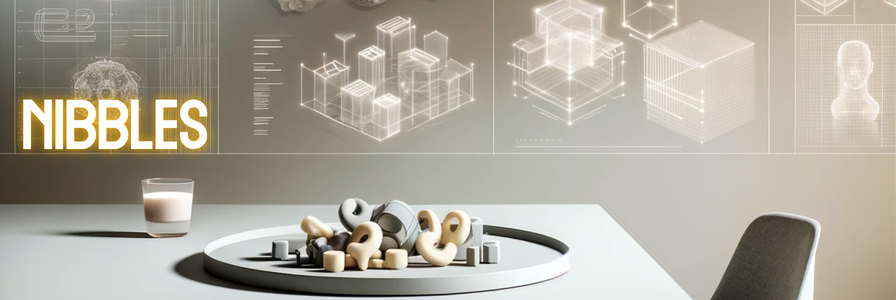Welcome to the latest dispatch from AI Hungry, where cutting-edge developments in artificial intelligence are always on the menu. In this update, we delve into Meta AI's Purple Llama initiative, a bold step towards ensuring trust and safety in generative AI. Additionally, we explore the impressive strides made by Google DeepMind with AlphaCode 2, an AI that's outperforming the majority of human programmers in coding competitions.
These stories not only highlight the rapid advancements in AI capabilities but also underscore the industry's commitment to responsible innovation. Join us as we unpack the details of these groundbreaking projects and consider their implications for the future of AI.

Meta AI Launches Purple Llama to Enhance Trust in Generative AI
Meta AI has introduced Purple Llama, a comprehensive initiative designed to bolster trust and safety in generative AI development. This project aims to provide developers with tools and benchmarks to ensure responsible creation and use of AI models, focusing initially on cybersecurity and input/output safeguards.
As part of Purple Llama, Meta AI has released CyberSec Eval and Llama Guard, which are benchmarks for cybersecurity safety evaluation and a safety classifier for filtering, respectively. The project is backed by major industry partners, reflecting a collaborative effort to secure the future of generative AI technology.

AlphaCode 2: Google's AI Surpasses 85% of Human Programmers
Google DeepMind has made a significant advancement in AI with the introduction of AlphaCode 2, an AI that writes code at a competitive level. This new model has shown remarkable performance, outshining 85% of human programmers in a competition. AlphaCode 2, which builds upon its predecessor's Transformer-based encoder-decoder model, was trained on a vast dataset of code from GitHub. With 41.4 billion parameters, it has demonstrated the ability to solve nearly twice as many problems as the original AlphaCode on the Codeforces platform.
Despite these achievements, Google DeepMind acknowledges the need for further development to match the top human programmers. The current system requires extensive trial and error and is not cost-effective for widespread use. However, the potential for human-AI collaboration is promising, with combined efforts pushing success rates above 90%. Google DeepMind envisions a future where AI models serve as collaborative partners in programming, aiding in problem analysis, code design, and implementation.


🚀 Microsoft Predicts Rapid Generative AI Growth in 2024. Microsoft anticipates a significant acceleration in the adoption and deployment of generative AI in 2024, with new services expected to transform business processes and enhance productivity. (Link)
🔍 Google Executive Highlights In-House AI Development Strength. Google's Kent Walker emphasized the company's commitment to in-house AI research, contrasting with Microsoft's reliance on OpenAI. This follows the release of Google's Gemini AI model, intensifying competition with ChatGPT. (Link)
🤖 Anthropic Boosts AI Model's Performance with Simple Prompt Tweak. Anthropic has enhanced its Claude 2.1 AI model's ability to extract relevant information from large texts by using a specific prompt prefix, raising accuracy from 27% to 98%. (Link)
💻 AMD Unveils Instinct MI300X to Rival Nvidia's AI Chips. AMD has introduced the Instinct MI300X GPU and MI300A APU, claiming superior AI performance to Nvidia's offerings. They're leveraging advanced manufacturing and have secured interest from major tech companies, despite Nvidia's strong market presence. (Link)
🤖 EU Nears Provisional Deal on AI Regulation, But Hurdles Remain. The European Union has reached a provisional agreement on AI system regulations, including generative AI like ChatGPT. Key issues like biometric surveillance are still debated as the EU aims to finalize the law before June elections. (Link)
🚀 Stability AI Launches Compact 3B Parameter Language Model for Edge Devices. Stability AI introduces StableLM Zephyr 3B, a new language model with 3 billion parameters optimized for edge devices. It offers competitive text generation capabilities and is designed for tasks like creative writing and Q&A on less powerful hardware. (Link)



